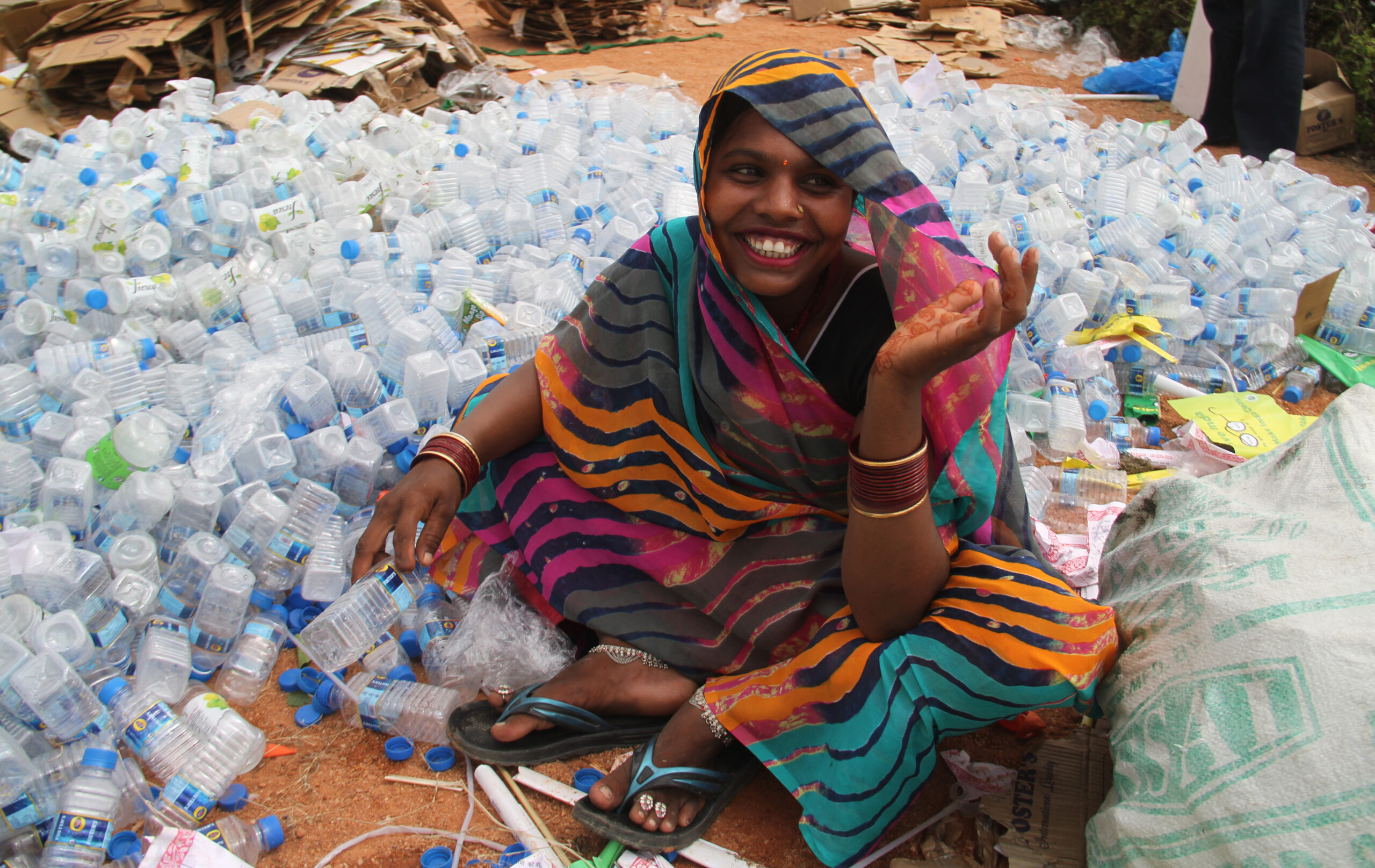IKHAPP Working Paper explores the inclusion of the informal recycling sector in a global agreement on plastic pollution

NEW DELHI, INDIA – June 04, 2020: A woman smiles as she collect empty plastic bottle because of poverty, World Environment Day.
IKHAPP presents the new working paper titled “Inclusion of the Informal Recycling Sector in a Global Agreement on Plastic Pollution“. The document critically analyzes and summarizes existing knowledge, discussions, and data and explores opportunities to make the informal recycling sector (IRS) part of the international road map to curb plastic pollution.
The IRS refers to the individuals and groups who collect, sort, and sell recyclable materials, operating outside of formal waste management systems. This sector is particularly prevalent in the Global South, while not absent in the developed world. Especially in developing countries, the IRS plays a critical role in the circularity of both municipal plastic waste and of waste imported from developed countries.
11 million waste pickers worldwide recover approximately 90 million metric tonnes of waste annually. The participation of informal sector actors in a circular economy faces resource deficits, lack of formal organization, and external support. Informal recycling workers often face significant challenges, including health and safety risks, lack of recognition and support, and economic insecurity. These challenges can hinder the sector’s ability to operate safely and sustainably under acceptable economic and social conditions.
This IKHAPP working paper, with contributions by international experts who participated in a webinar hosted by IKHAPP, proposes strategies for acknowledging needs and opportunities to improve working conditions, and to increase the recognition and support of informal recycling actors towards their just inclusion in future international actions to combat plastic pollution.
Including the informal sector in the global plastic treaty is not straight forward. The Minamata Convention on Mercury could serve as a case study for incorporating the informal sector in international environmental agreements. The Minamata Convention, which deals with the adverse health and environmental effects of mercury use and emissions, includes the informal artisanal and small-scale gold mining sector by grounding the agreement in research. The negotiators of the Convention acknowledged the importance of this sector, mostly composed of informal businesses, as a source of livelihood for millions of small-scale miners. A similar strategy could be applied to the informal recycling sector in the context of the plastic treaty.
The Working Paper concludes that policy-makers must have access to data about the plastic IRS role in waste management systems and supply chains, along with the health and safety challenges informal workers face, stressing the importance of providing informal recyclers with systemic inclusion, socio–economic support, and health protection. Positive experiences of integrating informal sector recyclers in extended producer responsibility (EPR) schemes from India are described in the paper.
The working paper is available for download on the IKHAPP website and is open for public comment and feedback.
By Luca Nizzetto, Caroline Enge, Diya Chakravorty and Hans Adam, Norwegian Institute for Water Research (NIVA)